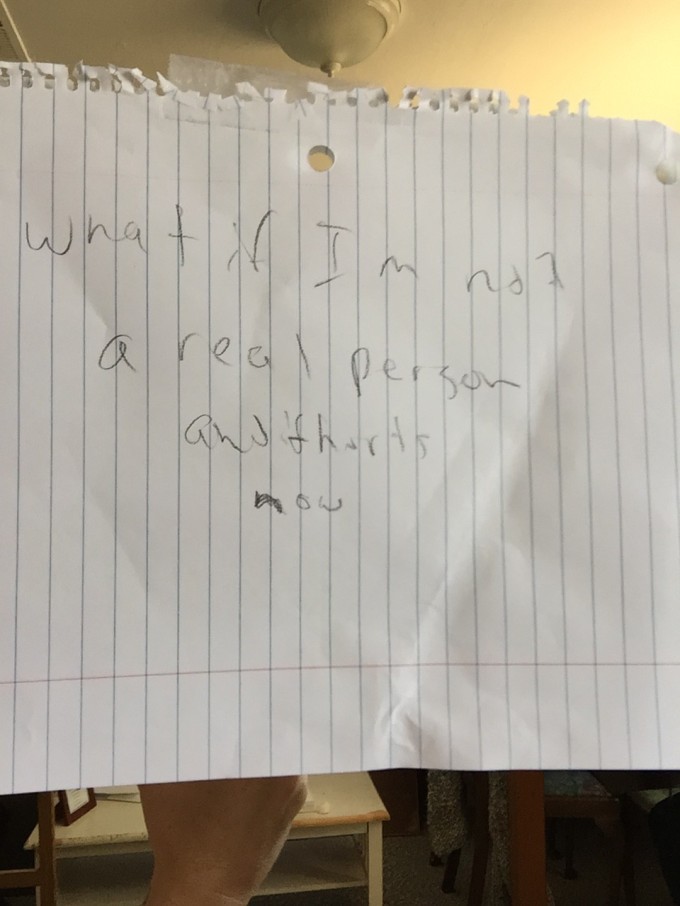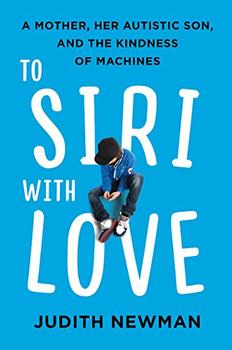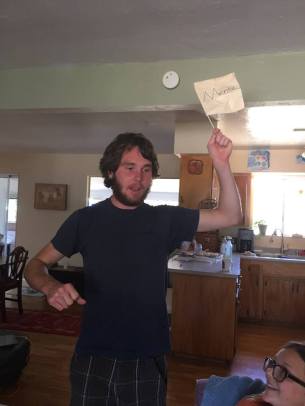 (revisiting this post from 2015)
(revisiting this post from 2015)
Write what you know. It’s a trite piece of advice for writers struggling to find a subject to which to put their pen, and a dire warning to those embarking on literary excursions into the unknown.
Many feel this saying is a load of crap. After all, if we can only write what we know, then we have no business even writing a memoir: our view of ourselves and our experience is so myopic, and our blind spots so extensive, that we can’t claim to truly know even what’s going on in our own lives. However, when we plunge into writing about something we don’t know, it pays to be cautious. After all, when you’re an “outsider” with respect to your subject matter, those on the inside are going to know if you get it wrong.
I’ll start with this piece of advice: Write what you want. Writing is an art, and stifling that art with a bunch of rules and warnings isn’t going to help anyone. You have something to say, and so say it, with your whole heart and to the best of your ability. But I’ll add this caveat: if you’re going to write about a type of character or situation that exists in contemporary life and yet is outside your personal experience, I advise you give it deep thought. The agonizing, soul-searching variety of deep thought. Your characters, and your readers, deserve no less.
Most of us have heard of the We Need Diverse Books movement. It is a worthy cause. Stories, both fiction and nonfiction, are an integral part of social change. Books help connect readers with people and situations that they may never encounter in their day-to-day life, and can broaden understanding and acceptance in a way that no amount of preaching or direct social activism can do. Books are a safe way to explore situations that we’d be frightened to become involved in in real life, and can help to lessen our fear and misunderstanding of those situations. For instance, a person frightened of foreign travel might be more comfortable after reading a million guidebooks. The more different cultures, lifestyles, and ways of being people are exposed to in books, the more comfortable they’ll be with it in their real lives.
It is precisely for this reason that we need to be mindful of how we portray our diverse characters. I’m not saying that we should never let a diverse character be anything other than a shining beacon of perfection, so that we don’t give readers the impression that all people of that diverse group are “bad”. Quite the opposite. What I’m saying is, the character has to be realistic. We have to be comfortable in that character’s shoes. We have to know them like we know a human being, and relate to their struggle, before we write about them. Otherwise, we’ll get it wrong. We’ll portray them as an issue, instead of a character, and we’ll miss an opportunity to let readers identify with them on a human level. And yes, we can end up doing actual, measurable harm to real people by reinforcing stereotypes and misconceptions.
I love it when books have diverse characters, but when I hear editors or agents say, “If there’s no diversity in your books, don’t worry: it can be added,” I cringe. It is possible to deliberately add diversity in this way and still have a great book. But, if you’re adding diversity purely for diversity’s sake, be very cautious. After all, if you’re inserting a diverse character just to make the novel more marketable, then you are exploiting the group to which that diverse character belongs. If you’re changing the color of a character’s skin, giving her a limp, or modifying his religious practice, take a long moment to get to know that character again, because you have changed who they are. Make sure you don’t overlook, misunderstand, or gloss over the issues that the character might face in their daily life. Otherwise, you run the risk of your character being a blue-eyed guy with shoe polish on his face asking John Wayne to smoke-um peace pipe.
You’ll have readers that identify with your diverse characters, and if you tell their story incorrectly, you’re selling those readers short and hurting them on a personal level.
This concept also applies to characters who are members of groups which may not traditionally be viewed as “diverse”. If your character is dealing with issues of any kind that you haven’t dealt with personally, make sure you put thought into it. For instance, I’m a recovering heroin addict, an ex-con, and a victim of physical and sexual abuse. I have thrown books across the room and cursed authors’ very souls for, in my view, misrepresenting these issues. I’m really tired of reading about poor, battered women who suffer their completely evil, idiot husbands stolidly until the day they rise up with unblemished inner strength to assert themselves. I know it may sound counterintuitive to some of you, but I feel belittled by this narrative. Abuse is ugly; it changes you. It weakens you. And it can make you stoop to the level of the abuser, because you know no different, and because you’re so scarred and hurt that you can’t function in a healthy manner. I do recognize that not all survivors of abuse see it this way, but it doesn’t stop me from feeling that my story is being exploited and told incorrectly for profit, when I read a book that gets it “wrong”.
Additionally, I’m tired of seeing drug addicts portrayed as objects of pity or contempt; complete hot-mess wastrels; soulless beings with no hope, intelligence, or inner life. I especially hate this narrative when said addict ends up seeing the light, and becomes a pink-cheeked, happy and productive member of society within the course of 350 pages.
It’s also annoying just when people get details wrong: heroin addicts with dilated pupils (opiates contract the pupils), or about a character “melting” black tar heroin in a spoon (it doesn’t melt; you have to dissolve it in water). The details are easy to research, and the rest, well, all I can say is that drug addicts are people, too. Drugs can make people into a hot mess, it’s true; but that hot mess can be interesting to examine, and you’ll make your story better if your character is well-rounded.
And, as a psychotic person, when a book about a “psycho killer” comes out, I have a legitimate fear reaction. People like me are beaten, imprisoned, and killed because of wrongful stereotypes like this. The same for some other marginalized groups. Misportrayals can do real harm, and you don’t want that on your conscience. So, do your research if you’re writing about characters from different walks of life as you. And, the best research is not academic research, but experience*.
If you want to have marginalized characters in your books, but don’t share that marginalization, I say go for it…but put thought into it, and seriously consider having your diverse characters be side-characters, and not main characters. Also, don’t write characters with marginalizations that you’ve only read about. If you don’t have a diverse group of friends, then you might not be the right person to be repping diversity in literature. But, seriously, we all have diverse friends, right?
I have a lot of Mexican-American characters. I speak Spanish and have lived most of my life in areas with a huge Mexican-American population, so I’m comfortable writing about the culture—usually from an outside point of view, because I may not know the internal issues of being Mexican-American, but I can speak to my experience as an observer, and so my characters can as well. I also have Mexican-American beta readers, so if I mess up, as I always will, they can help me with it.
I also often write about characters with mental illness/neurodivergence. I am mentally ill, autistic, and have psychosis. However, when I was writing a book with a schizophrenic main character, I reached a point where I felt like I was getting it wrong. So, I went down to the local park and made friends with a young schizophrenic man I’d seen hanging around.
My friendship with Phoenix was never about writing a novel. I don’t hang out with him because of his mental illness, but because I enjoy his company. He’s an amazing, intelligent, and hilariously funny person.
Hanging out with him taught me a lot about myself as a neurodivergent person, and opened my eyes to the way ableism affects us all. We were kicked out of bars, restaurants, casinos and libraries because people were uncomfortable with his behavior (mine too, to be honest); I had to intervene with the cops and the courts when he was arrested for no crime other than being schizophrenic. I spent horrible, anguished days and nights, crying and worrying, when he was institutionalized, or in the hospital after someone misinterpreted something he said and beat him into a coma. Certain experiences with him have triggered my own episodes of psychosis, as well, which were of course frightening and draining.
My Other Place Series wouldn’t be what it is without Phoenix. I would have missed so much of the joy, the beauty, the horror, and the subtleties of the schizophrenic experience if I hadn’t spent time with him, because seeing psychosis from the outside, and really being part of someone else’s experience, is different than experiencing it myself. The more insight we have into life and people of all kinds, the better our writing will be.
Just like I don’t hang out with Phoenix because he’s mentally ill, I didn’t write my book about the schizophrenic character because he is schizophrenic. I wrote it because he’s an interesting character, with a really good story to tell. Readers will identify with characters, and want to spend time with them, if they’re interesting people, and not just a list of symptoms and diagnoses or character traits you gleaned from internet research.
Putting thought into it doesn’t make you exempt from criticism, however. Nothing will. If, someday, a reader gets angry at me for getting a Latinx character wrong, well, it will upset me, and I’ll listen, but I’ll have the consolation of being able to talk about it with my Latinx beta readers and friends and do better next time, so it won’t destroy my love of writing.
And, y’all, I get criticism about my own voices characters. Nothing makes you exempt. Criticism is part of being a writer. Even when we are writing from experience, we won’t know all facets of that experience. Every experience is valid, and incomplete. (Note: please don’t harass own voices writers because their experience doesn’t match yours. Truly.)
Even if they don’t resonate with everyone, I am comfortable with and proud of my books. I think they can add to people’s understanding, rather than detracting from it by creating false impressions.
This is what we should strive to do when we write, whether it’s from a diverse perspective or not, and whether our tale is a lighthearted romantic comedy or a dark “issues” novel.
Always treat your characters (and your readers) with the respect they deserve, and you will be able to bear any criticism with dignity.
*For the love of God, man, don’t apply this concept to writing about drug addicts and ex-cons. I’d rather your characters be trite and wooden than for you to go get thrown in the slammer for a PCP binge you embarked on for novel research.
Elizabeth Roderick is an author and freelance editor. You can find THE OTHER PLACE and her other books on Amazon.






 On the other end of the spectrum is my partner, Phoenix. He has schizophrenia and can’t even walk silently into a room without people reacting to his neurodivergence: his strangeness radiates from him like a glow—a beautiful glow, in my opinion, but not in the opinions of most others. He’s one of the very best, coolest, smartest, kindest people I’ve ever met, but most folks will never know that because their reactions to him are almost uniformly negative. They avoid him, or have a (misguided) “protective” anger reaction (for instance, they call the cops on him for yelling and pacing in his yard. They beat the shit out of him for talking to himself, because they think he’s “talking shit” about them). At best, they pity him and don’t take anything he says seriously.
On the other end of the spectrum is my partner, Phoenix. He has schizophrenia and can’t even walk silently into a room without people reacting to his neurodivergence: his strangeness radiates from him like a glow—a beautiful glow, in my opinion, but not in the opinions of most others. He’s one of the very best, coolest, smartest, kindest people I’ve ever met, but most folks will never know that because their reactions to him are almost uniformly negative. They avoid him, or have a (misguided) “protective” anger reaction (for instance, they call the cops on him for yelling and pacing in his yard. They beat the shit out of him for talking to himself, because they think he’s “talking shit” about them). At best, they pity him and don’t take anything he says seriously. want to put out feelers to see what kind of support this idea would have, because it will be a difficult thing to do and I need to know it would have an effect before I set out to do it.
want to put out feelers to see what kind of support this idea would have, because it will be a difficult thing to do and I need to know it would have an effect before I set out to do it.
 I didn’t take any “before” pictures: I was afraid that I’d never be able to sleep there if I had a reminder of how absolutely horrifying it was. I regret it now, because it would be nice to look back and see how much I’ve accomplished. The “before” pictures I do have were taken after I’d already filled a gigantic trash hopper with garbage and debris, ripped out all the drywall and insulation (which was even harder than it should have been, because I couldn’t see with my face mask steaming up my goggles), swept it clean, and scrubbed it several times with bleach. But I guess you can get an idea.
I didn’t take any “before” pictures: I was afraid that I’d never be able to sleep there if I had a reminder of how absolutely horrifying it was. I regret it now, because it would be nice to look back and see how much I’ve accomplished. The “before” pictures I do have were taken after I’d already filled a gigantic trash hopper with garbage and debris, ripped out all the drywall and insulation (which was even harder than it should have been, because I couldn’t see with my face mask steaming up my goggles), swept it clean, and scrubbed it several times with bleach. But I guess you can get an idea.
 When the house was done, my mom helped me build a little bathroom next to it, using reclaimed wood she’d kept after doing some demo on the property. I set it up with a composting toilet, and a shower with a propane-fueled, in-line heating unit. I created a rudimentary greywater system for the indoor sink and the shower; they currently drain into the flower garden in front of my house. I have plans to expand or improve that system in the future.
When the house was done, my mom helped me build a little bathroom next to it, using reclaimed wood she’d kept after doing some demo on the property. I set it up with a composting toilet, and a shower with a propane-fueled, in-line heating unit. I created a rudimentary greywater system for the indoor sink and the shower; they currently drain into the flower garden in front of my house. I have plans to expand or improve that system in the future.
 All told, the renovation and construction only cost about $1,500.00, including the toilet and shower…most of that money, in fact, went toward the toilet. I was able to do the job pretty cheaply, and to pay for it all out of savings.
All told, the renovation and construction only cost about $1,500.00, including the toilet and shower…most of that money, in fact, went toward the toilet. I was able to do the job pretty cheaply, and to pay for it all out of savings.